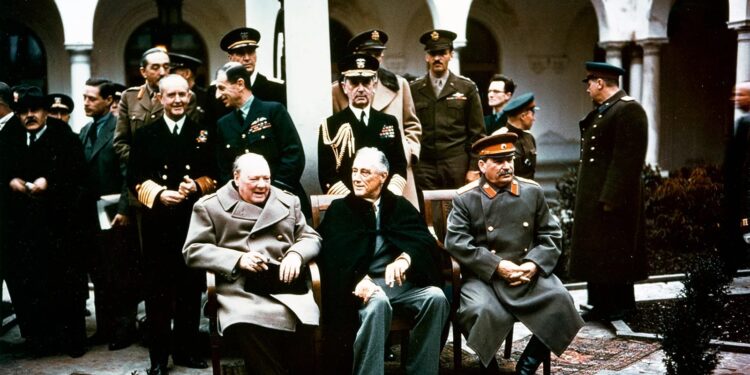The Yalta Conference of 1945 marked a pivotal moment in history, bringing together three of the world’s most influential leaders to discuss the post-World War II landscape. Held from February 4 to 11, the conference took place in the Crimean resort town of Yalta and featured the leaders of the United States, the Soviet Union, and the United Kingdom: President Franklin D. Roosevelt, Premier Joseph Stalin, and Prime Minister Winston Churchill, respectively.
As World War II neared its conclusion, the Allied forces sought to strategize and negotiate the future of Europe and Asia. The primary goals of the Yalta Conference were to address the issues of post-war reconstruction, the establishment of democratic governments, and the division of Germany.
One of the key outcomes of the conference was the establishment of the United Nations. The leaders recognized the need for a global organization to maintain peace and prevent future conflicts. The UN was envisioned as a platform for diplomatic dialogue and conflict resolution, and its creation marked a significant departure from the failed League of Nations after World War I.
Another critical aspect of the Yalta Conference was the division of Germany into four occupation zones, controlled by the United States, the Soviet Union, the United Kingdom, and France. The purpose was to ensure the disarmament and denazification of Germany, preventing it from re-emerging as a military threat. The division laid the groundwork for the later Cold War tensions as ideological differences between the Western Allies and the Soviet Union emerged.
The fate of Eastern Europe became a contentious issue during the conference. Stalin, seeking to establish a sphere of influence, pushed for pro-Soviet governments in Eastern European countries. Churchill and Roosevelt, however, aimed for democratic elections and self-determination for these nations. The compromise reached at Yalta allowed for free elections in Eastern European countries, but the Soviets maintained significant influence, setting the stage for the Soviet domination of the region during the Cold War.
Despite the apparent success of the Yalta Conference in addressing immediate post-war issues, criticism arose in subsequent years. Some argued that the concessions made to Stalin paved the way for the Soviet expansion and the Iron Curtain that descended across Europe. Others contended that Roosevelt’s declining health and Stalin’s cunning diplomacy played a role in the perceived compromises.
In conclusion, the Yalta Conference of 1945 played a crucial role in shaping the post-World War II world. While it successfully established the United Nations and laid the groundwork for the division of Germany, it also sowed the seeds of Cold War tensions and the geopolitical struggles of the ensuing decades. The decisions made at Yalta had far-reaching consequences, impacting the course of history for years to come.




Recent Comments